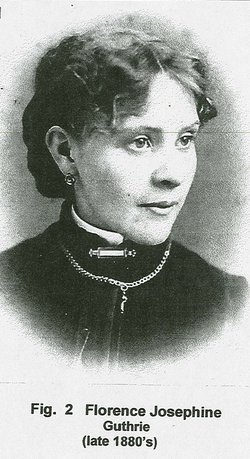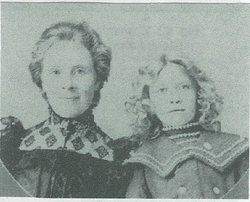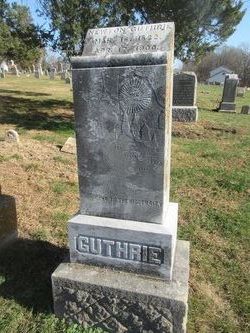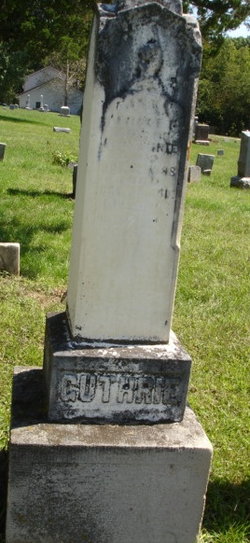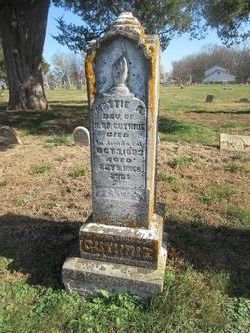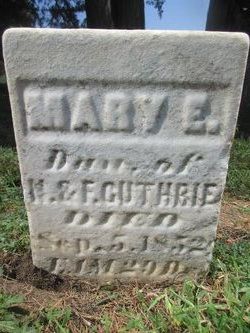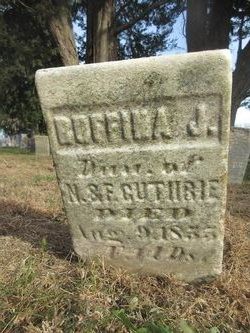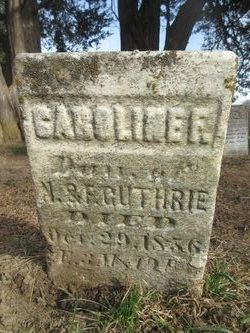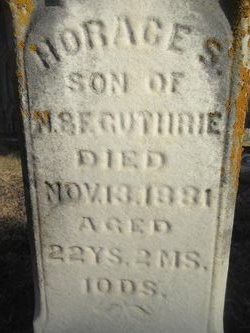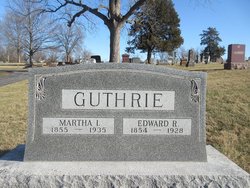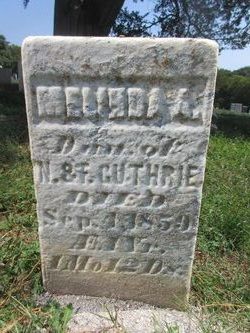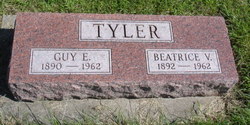| Description |
: |
Cont'd from husband Henry Slack:
Unfortunately, Grandma wrote no more about her life other than a short journal she kept in the late 1930s; we will look at that later. The earliest photograph we have of Grandma was takenin her late teens, probably in the mid to late 1880s (Plate XVI, Fig. 36). She was very pretty, with refined features and soft, expressive eyes. Her hair was parted in the middle and laid in soft waves to the side, then pulled back to a tight bun well off the shoulder. Although not evident in the photo, her hair was light brown...
Read More
|
Cont'd from husband Henry Slack:
Unfortunately, Grandma wrote no more about her life other than a short journal she kept in the late 1930s; we will look at that later. The earliest photograph we have of Grandma was takenin her late teens, probably in the mid to late 1880s (Plate XVI, Fig. 36). She was very pretty, with refined features and soft, expressive eyes. Her hair was parted in the middle and laid in soft waves to the side, then pulled back to a tight bun well off the shoulder. Although not evident in the photo, her hair was light brown with reddish tints. She was small of stature and stood about five feet four inches tall.
As for her education, I know of nothing more than what was traditionally available at that time - elementary school in a one-room school house, through the eighth grade. She had learned to read and write before she started school, at nearly seven years of age. She finished formal schooling at the age of 14 1/2 years. Her mother died October 12, 1888, when Grandma was almost 21 years old, leaving her to care for her father.
Around 1889, Henry Slack (my grandfather) returned to Hartford after attending business school and working in Emporia, Kansas. Although it is obvious that Josie and Henry knew each other during childhood (they were near the same age) and lived in the same community, no mention of courtship appears until a chance meeting at the old fiddlers' tent at the Iowa State Fair.Within the next year, they were married. For all the years thereafter, they celebrated this meeting by returning to the old fiddlers' tent when they attended the State Fair. Of her wedding day (March 25, 1891), Grandma writes in her journal of 1938,"March 25, 1938. Our 47th anniversary of our marriage. Nice warm day. Our wedding day was gloomy, muddy roads-snowed that night. No paved roads then- no automobiles thought of- no telephones- no airships." They were twenty-five and twenty-three years old at the time of their marriage.
They acquired the small farm just to the northwest of Hartford, soon after they were married. My mother, Bea, their only child, was born April 22,1892 (1 year and about 1 month after their marriage). Grandma was 24 years old at the time. I expect that her delivery was quite difficult because Bea was born with a flattened nose, which had to be surgically corrected several years later. I am sure that these events contributed to their decision to have no more children. The house, by the way, where Bea was born was still standing until 2001, when it was torn down as a result of four-laning Highway 5.
Sometime after Bea's birth, Grandpa Guthrie's health began to fail, and eventually he moved in with Granddaddy and Grandma Slack and was living with them at the time of his death on 17 April 1900. All that I know of his condition was that Bea said he went into mental decline. Those must have been very hard years for Grandma Slack, because she dearly loved and admired her father.
Around that time, just before Grandpa Guthrie's death, Granddaddy and Grandma purchased the farm across the road. This was a larger farm with more pretentious buildings. Granddaddy Slack was quite successful as a farmer and greatly improved and added to the property. He named the farm "Hill Crest" and placed an arched sign with the name over the driveway. Both the house and barn were still standing in 1996 (Plate XVII, Fig. 40- Josie and Bea Slack, ca. 1902).
Some time around1905 Granddaddy Slack sold Hill Crest farm and purchased a larger farm on the rich Des Moines River flood plain, about two miles north of Hartford. Although other buildings on the farm were fairly modern, the house on the property was the Old Parmelee log cabin, the first house built in Warren County (1843)(Plate XVII, Fig. 41 - Bea and Josie in front of Parmelee cabin, ca. 1906). I can imagine how Grandma must have felt, moving from the very nice large house on Hill Crest farm to a three-room log cabin that was nearly 60 years old. They lived in that house until 1920, when they moved into an 8-plus-room brick mansion that they had built just to the north and west of the old cabin (PlateX VIII, Figs. 42-47. A series of pictures taken of Grandma at the Island Farm, ca. 1924-1926).
This was their home until March of 1931. The depression hit Granddaddy Slack, as it did many others, at a time when he was overextended in debt. He had to sell most of the farm (he retained 100 acres on the backside of the farm, next to the Des Moines River) but was able to recoup enough to buy another farm (280 acres) one mile north of Sandyville. This was a hilly farm, with poor improvements. Again,Grandma had to move into a small, run-down house. The house was quickly enlarged and remodeled, but was never a great or even a very good house. Yet, they seemed to live there contentedly for the rest of their years.
Grandma's life, as it was for most women of her day, was spent in support of her husband. She kept the house, prepared the meals, did the laundry and ironing, kept the garden, canned the vegetables and fruits, mended clothes, made clothing, cared for the chickens, raised a daughter, loved her husband, and on and on. Much of this sounds very menial by today's standards, but for that time the mother's contributions to the success of a family's enterprise were just as significant as those of the father. Both were totally involved in whatever had to be done to keep the farm productive; the mother in her way, the father in his. Grandma's career, therefore, was to support her husband in any way she could so that he would be a successful farmer. She developed no other career; she didn't teach, do secretarial work, nor was she even active in church work. She was, however, always deeply involved with the well-being of the families of the hired men who helped work the farm. Over the years, this accounted for a lot of extra work on her part. Her efforts were generally well received, and even years after these families had left the employ of Granddaddy, many would comeback to visit and renew their friendship.
Special memories I have of Grandma:
By the time I got to know Grandma, she was in her early to mid sixties. She was a loving grandmother, but not overly affectionate: one kiss and a hug, and never do I remember any babytalk. She always wanted to hear about our activities and would comment with pride about our accomplishments. She expected us to mind, but I don't recall her ever punishing any of us grandchildren. There were always treats, usually store-bought cookies, in the pie safe for us to eat when we came to visit or to hand out when they visited us.
On one of my first overnight visits to Grandma's and Granddaddy's, Sid and Hank were along, too. It was probably in mid-May of 1933 or '34. During the night, a spring shower came through but had cleared away by morning, giving us a beautiful, bright, clear day. Grandma woke us early and told us to come quietly to the porch door. Then she pointed to the storage shed near the orchard and whispered, "See the mother groundhog and her little ones?" Sure enough, standing on their haunches, was a mother groundhog and her three kits. They had come out of their burrow under the shed to soak up the early morning sun.
As I got older, I would go by myself. Later, Steve would accompany me to spend two or three days with Grandma, just after school was out in the spring. She would always have several chores for us to do during our stay. One that came up quite frequently was painting her wicker porch furniture. She always had them painted the same color- apple green; I remember reading the color on the can. Other chores I recall were picking cherries, scrubbing the porches, and hoeing in the garden. Picking cherries was always an anticipated chore, because it meant climbing in the trees and then the reward of delicious cherry pie the next day.
I always loved going to Grandma's and Granddaddy's. There was always a good smell in the kitchen, even when there was no cooking going on. It was a clean, kind of tangy smell, probably from the teapot that Grandma always kept brewing. And then there were the treats in the safe. [The safe (pie safe) had been made for Great Grandma Guthrie and had been passed down to Grandma Slack. The safe is now in my (D. Tyler) possession and has been restored to its old glory, but no longer used to store food. [See Plate XVI, Fig. 37.]There was no refrigeration, so food was kept either in the pie safe or down in the cave (outside food cellar). As I have already mentioned, store-bought cookies were nearly always present. A favorite that I remember was a chocolate-covered marshmallow on a cookie, often with a cherry inside and/or an English walnut half on top. After the treats, there was the trip to the cave to get a bottle of ginger ale. We would pour it into tin cups and drink it down while it was still fizzing, enjoying the feeling of it as the bubbles went up our noses. How good that spicy, cool, fizzy drink. was on a hot summer day!
Grandma was an avid reader; she was always reading some novel or a magazine. Her favorite magazine was The Saturday Evening Post. When she finished with them, she would bring them to us. Grandma was also a soap-opera fan. She listened to several, but the one she liked· best was Ma Perkins. Granddaddy did not want a "speaking" radio in the house, but he let Grandma listen to a crystal radio. It was a very simple device, composed of a coil of wire wrapped around a cardboard cylinder (about 3" in diameter and 6" long), mounted in a wooden box about 7" square. The coil was attached to an antenna outside the house and to a receptacle on top of the box that held a "crystal" (quartz?) about 1/2"in diameter. A very fine piece of wire, called the "catwhisker," was coiled around a larger wire, which served as a moveable arm. The free end of the wire was bent at a right angle to the arm and the catwhisker was placed on the crystal. The other end of the fine wire was attached to a set of headphones. By carefully scratching the fine wire over the surface of the crystal, a radio signal could be picked up. It was never very clear, and very much influenced by the prevailing weather. None the less, it did work and gave Grandma many hours of enjoyment.
Grandma always had many cats. They were never allowed in the house, but Grandma fed them on the back porch. Although most of them were wild and wouldn't let you pet them, there were some that would (Plate XIX, Fig. 49- Grandma and two kittens, 1941). One of the detriments of having lots of cats around was that during the mating season the females attracted neighboring tom cats. The resident toms resented the competition, and loud, screeching fights broke out in the middle of the night. This infuriated Granddaddy, who kept his shotgun handy for such episodes. He would jump out of bed, cursing his worst (and his worst was prettybad), grab the gun, open the door, and blast away into the night. I don't know that he ever killed any cats, but you can be sure that they high-tailed it out of there, at least for that night.
Grandma and Granddaddy took several long trips, mostly during the 1910s and '20s. One is outlined in Grandma's journal of 1937-40. After a big sale at the Island Farm (1918), they took a train trip to Kansas City, Vicksburg, and New Orleans. They were gone for over a month and a half. On the way home, they bought a new car in Des Moines. By the time I knew them, their traveling was mostly confined to short, day-trips in southern Iowa and Missouri, but they did go quite frequently. I remember when they purchased a new 1936 Ford. They drove it over to our home (Switzer place) to show us and to bring steaks to celebrate President Roosevelt' selection to his second term. I recall how nice the interior smelled (I'd never been in a new car before) and I was impressed with the fact that it had a domelight. Grandma and Granddaddy would stop by our place (Switzer and Pyle place) quite often during their drives. Granddaddy would stop at the driveway, honk his horn and wait for mom and us kids to come out. Granddaddy would generally ask us to recite the "five things we must do to have a successful life." He had taught them to us early on and continued to reinforce them on these short visits. After responding with, "Don't lie, don't cheat, don't steal, don't be afraid to say no, and don't let anybody run over you," Grandma would give each of us a piece of candy, usually candy orange slices. We would then scamper off, leaving them free to visit with Mom. I've thought about these rules now and then over the years and, although they emphasize the negative approach, they present a pretty good philosophy. I personally have found the last two the most difficult to conform to.
Grandma and Granddaddy frequently gave Mom money to help buy clothes for us. I recall one time when they themselves took us to Des Moines for that purpose. It was in December, probably 1935, and it was cold. I don't remember who all was along, but I remember getting a sheepskin coat and a pilot's helmet with goggles. This style was a fad for young boys during the mid-depression years. Two other memories of that trip come to mind: visualizing riding along the Old Indianola Road, just over the crest to the north of where Highway 5 now crosses it. The other is of getting home late and being nearly late for the Christmas play at the school. I remember coming up the north stairs with Miss Morris standing at the top and sternly saying, "David Earle, you're late, hurry."
I've mentioned Grandma's kitchen before, but let's return there for a better look. By today's standards, it would be considered quite sparse in furnishings. The center of activity was an enameled steel-topped table that stood in the center of the kitchen area. Along the northwest wall was an ivory-colored kerosene cookstove, with attached oven, and on the north wall was the kitchen cabinet, with a pull-out enameled steel working surface. The cabinet contained all the staples for cooking/baking, i.e. flour, sugar, spices, baking powder, etc. As you faced the cabinet, the water bucket, with dipper, was placed to the left of the work area. The pantry opened from the east wall. The safe (pie safe), with the mantel clock setting on its top, was along the southwest wall. There was no refrigerator or icebox; anything to be kept cool was taken outside and down into the cave (root cellar). A hand-washing basin sat on a small table along the south wall. There was no running water in the house. Waste water and food refuse was placed in buckets (slop buckets) and carried to the hog pens twice a day. Sounds a bit primitive, but we didn't think so at the time. Now, what good things do I remember coming from that kitchen? There were many; some of my favorites were beef steak (round steak), baked potatoes with skins that were thick and crisp, beef jerky that was dried in long strips hanging in the pantry doorway, and mince meat, which was made at Thanksgiving time and placed in a large crock in the bottom of the china cupboard in the dining room. We children would sneak in with a spoon and take samples when we visited (La Von has the recipe in her collection). But, best of all was Grandma's gingerbread. I've never tasted any better. It was moist, not overly seasoned, and literally melted in your mouth. She always baked it in a ten inch, round aluminum pan that stood about three inches high. Thinking of Grandma's gingerbread always brings to mind the last vision I have of my brother Sidney. He had been home on leave at Christmas time in 1944. Guy and I were waiting for him in the car, as we were about to leave for the bus depot. Sid opened the door, gave Grandma and Mom a hug and kiss then came down the walk, eating a large wedge of Grandma's gingerbread. This recipe has been lost, unless Georgene has it.
Grandma and Granddaddy were sick quite a lot during the late '30s and early '40s. I don't know the nature of their illnesses, but they often went to small hospitals (one was at Pleasantville) and required nursing care for long periods. My mother frequently stayed with them during these times. Aunt Rose would stay with us some during those times, and other times we would stay with her and Grandma Tyler in Hartford. Those were hard times and always generated a lot of tension among the families.
At this point, I am going to insert a typed copy of a journal that Grandma kept from September 21, 1937, until April 3, 1940. Although brief, it gives a good glimpse of their lives during that time. Remember, this was at the time the Great Depression was winding down, and the horrors of World War II were just over the horizon.
CHILDHOOD MEMORIES
FLORENCE JOSEPHINE (GUTHRIE) SLACK
Typed as true copy from the original handwritten manuscript
TO MY GRANDCHILDREN
I am jotting down some incidents of my childhood days, hoping they may interest you. I have often regretted I never questioned my parents about their childhood days, just the things they sometimes spoke about. I wasn't interested so much then as I have been in later years. I will write down as much as I remember about them.
My father was born in Montgomery County, Virginia, on March 16, 1822. He used to say there were three smart men born in that month, their birthdays following each other, his the 16th of March, St. Patrick's the 17th, and General Grant's the 18th. His father owned a plantation and slaves, His name was John Guthrie. His mother's maiden name was Peggy Miller, who had been married before. Her husband had died leaving her with one child named Jacob Henry Wysor. My father was named Newton. The others were named John, James, Rush, Milton, Stennett, Talitha Ann, and Rufina Jane. When my father was 13, his father sold his plantation, gave his slaves their freedom, moved his family to Indiana.
I never heard my father say much about his home or mention the Negroes by name, except one, Dinah.
He told us about him and Dinah going up the mountain to pick berries. They saw a bear and Dinah gave a screech, said "Lawdy-massy, thars a Bar.” He said the bear was as scared as they were and ran into the bushes. He and Dinah made tracks for home as fast as they could. He never spoke of the journey to their new home in Indiana nor of the home there. After his mother died, his father was ill quite a while. My father took care of him until he died. He had some leisure at that time and studied at home. He had a wonderful mind and memory, remembering everything he read, tales and incidents, a great historian and bible student. After the death of his father he came to Iowa, taught school at Sommerset and somewhere near where Swan is now. And down near Red Rock he taught a subscription school, and was paid in part with crockery ware. He borrowed a yoke of oxen and went about the country peddling them.
After a short time he purchased 160 acres of land, then went back to Indiana where he and mother were married and started for Iowa. Aunt Rufina and Uncle John coming with them. They were married the 25th day of September, 1850.
They lived in a one room log cabin that first winter. Uncle John Ribble had bot a farm in Marion County near Otley, moved there the following spring. After they had gone, mother had very few things to keep house with and no place near to get them. She said she made coffee in a skillet for some time until they could get a coffee pot. But to her doing without things was a great joke, she managed as best she could, never was home-sick a minute.
Sorrow came to them in losing their first children, four little girls, dying in infancy. Their names were Melinda Alice, Rufina Jane, Mary Ellen, and Caroline.
Then were born to them - Edward Rufus, Horace Stennett, Martha Ann, Elmer Elsworth, Florence Josephine (myself, the youngest). I was named for Uncle James' wife, Josephine Denning, they had one daughter, Eulalie.
Uncle Rush's wife was Patience Moore. They had four children - Ambrose, Clara, Elma and Elmer - twins. Uncle Henry Wysor and his wife, Sarah, had two sons, Harry and Will, a daughter, Martha.
Uncle Milton's sons were John, James, and David.
Stennett died at an early age.
Aunt Talitha married Thomas Points, their children were John, Charles, Carrie, Addie, Rufma, Maggie, May, and Juliette.
Aunt Rufina's children were David and Newton.
Mother's maiden name was Fanny Truitt. She was born in Ohio. Her mother died when mother was six-weeks old. Her father married again (and) they moved to Indiana.
Mother's father's name was James Truitt. His first wife's name was Mary, his second was, I think, Eliza. They had four children Jesse, Milton, Mary Ellen and Joseph. Milton married Louisa Smith- had three sons, John, James, and Jerry. Jesse's wife was named Eliza. They had one son, James.
That is about all I know of father's and mother's families.
My earliest recollections are sitting in my little arm chair before a blazing fire in the fireplace, gazing at the pictures the coals made. As they formed various shapes, Elmer and I would fancy we would see animals, houses, trees, many things - it was very interesting to us. Then there were two large sugar trees in front of the house. On one large limb we had a swing, a long rope swing. I remember brother Rufus (later he was called Edd) swing me, making the swing go high, my feet touching the leaves on a high limb.
One time I had the ague. Every other day I would get so cold and how I would shake. They would build a fire in the fire place. I would sit as closely as possible to the fire in my little armchair, then when my fever would rise, begin pushing back from the fire. What a time they had getting me to take my medicine. It was called "The Wonder of the World." I'll never forget how terrible hot it was and how I hated to take it. I would go out and walk round and round one of the big sugar trees, mother following after with bottle and spoon, coaxing me to take my medicine, would promise me new dresses, a doll, other things that appealed to me, finally I would give in and take the nasty dose.
Guess it finally cured me. At least I got well. I remember the trundle bed in which sister Mattie and I slept. A trundle bed was a little low bed that could be pushed under a big bed, out of the way in the day time, then drawn out in the room to sleep in at night. We would lie there looking at the fire when the weather was cold til we would fall asleep. All warm and comfy in a feather bed with warm woolen blankets.
In the room where the fireplace was there was the big bed, the trundle bed, a book case and table, two big cupboards on either side of the fire place. They extended clear to the ceiling, one of them with upper glass doors in which were the dishes on the shelves.
The other cupboard was called the clothes press - in the lower part mother kept the bed clothes. Sometimes I would open the doors, crawl in, lie down on the blankets and go to sleep.
Mother didn't scold me for doing that, in fact she didn't scold me often, not that I didn't need scolding tho.
We must have been crowded in the winter time for we moved the cook stove in front of the fire place, brot the table in too. The other big room had three beds and a lounge, a heating stove also. Most of our furniture was black walnut or cherry wood made by a carpenter or cabinet maker. His name was Jerry Church. (I have the walnut safe and the cherry table, and Steve has the bureau, lounge, and walnut·hutch and cabinet [Plate: XVI; Fig. 37- Grandma's cherry table, Fig. 38-walnut pie safe]). He always called me Fonta and Elmer he called Ebby. I was called a good many variations of my two names, Florence Josephine, Florence and Fonta, Josephine, Josephus, Joses, Josie, Jo, Joppa, Joseph, Jose, Jodie, and Joie. My brothers I called Fussy, Harry, and Ebby. My sister, Mattie.
My mother had a spinning wheel on which she spun yarn and knit the yarn into stockings and socks two pairs apiece.
How fast she would knit and with her eyes shut some of the time. Mattie knit her own stockings, but I, well, mother would start me to knit-ting, but I would drop stitches and knit too tight, it all ended in her taking it over at last. And how I did dislike to piece quilts. I did piece two, was a long time about it. Mother made me finish them tho - told me I must finish them before school opened or I couldn't start. I pitched in and finished them as I wouldn't miss school for anything. When I was three years old I remember brother Rufus was severely cut when helping with the threshing. Someone was cutting bands that bound the wheat in bundles. In someway the knife slipped, cutting brother in the chest near the lung. It didn't heal readily so they sent him out to the mountains to Colorado. I remember very well the day he left – there was a broken board in the walk leading to the well. I was sitting on the walk, he came out to tell me goodby and he stumbled over that broken board, he had tears in his eyes, he picked me up and kissed me. Mother was crying, I didn't understand what it was all about.
Colorado seemed a long long way off then and he was only sixteen. I don't know how long he was gone, must have been two or three years, tho. He taught school out there after he was there sometime. At first he worked on a ranch for Mr. Rand. He told us a lot about Hattie Rand, a daughter, how she could ride horseback, help round up the cattle. When he returned home he was quite well. I remember his telling about staying all night, somewhere, and they didn't have much to eat but a big dish of hash and the children ate so hearty and fast, they would sing out "hash - more hash." My father was elected to the State Legislature but I don't know what year it was, maybe before my time. He was elected Justice of the Peace at one time, and most everyone called him Squire Guthrie. He was well read in law, was retained in many law suits, was a good pleader. I remember a great many coming to him for advice. When he was Justice he was called upon to marry a couple. After the ceremony one of the boys went out, caught a sheep with a bell on, brot it in the house to jingle the bell. These folks lived on a hill near South River, west ofPleasantville.
I learned to read and write before starting to school. Was reading in McGuffeys second reader, was nearly seven years old.
My first teacher was Sarah Hayes, a cousin of Birdie's father. She had peculiar ways; or so people thot, different from the teachers that had taught before her. I was sort-of scared of her I know.
The school house had one room and an entry to hang our wraps and a long bench to set our lunch boxes or pails on. The seats and desks were carpenter made of walnut lumber, two long benches for recitations.
The next summer they built a new school house which was used for many years until it burned down, was known as the Brown School. It was situated on corner west of the Pendry place. One little boy who had just started to school, one day chewed a button off his waist, and gave it to me. Poor little chap, when the next term of school opened, he was no more – had died of diptheria - his little sister, also. They were Alec Pendry's brother and sister, Bennie and Muggie. I still have that button, also a tiny hickory nut Jim Brown gave me. One day Lou Art came to play with me. She had a loose tooth just ready to drop out, she let me wiggle it and it did drop out - fell among the leaves under the big sugar tree.
We hunted along time to find it and couldn't. Lou cried and cried because we couldn’t find it. She was all broke up about it. Lou and I walked to school together many aday.
We scholars had great sport in the winter when there was snow. We would slide down hill on a long board, a big boy with two sharpened sticks to pilot the board sitting in front, the rest of us as many as could pile on, squatted down holding to each other, the board was soon worn slick and would scoot down the road real fast. Then we would walk back up the hill and slide down again and again.
We had Literary readings and debating sometimes, and spelling schools, I was rated a good speller.
The last day of school we spoke pieces, I liked to speak. About the first time I spoke at school I was much concerned about getting out from where I was sitting, that was between two women, so when my name was called I dropped down to the floor, crawled beneath the desk, took my place and began to speak, but there was such a roar of laughter at my performance that the teacher told me to sit down a while, which I did. I didn't see anything to laugh at and wondered why they all laughed so. I remember so well how the teacher looked, tears in her eyes. She laughed so hard. Billie Brown, Jim Brown's father, mentioned that occurrence to me many times, he said I sure looked funny crawling out from under the desk, my curly hair falling about my face white pantalets below my dress, looking sober intent on speaking my piece. I don't remember what I spoke, but I do remember what I spoke on another occasion - this brot down the house too, much to Elmer'sdisgust. He had selected a piece for me, and I had learned it well, but for some reason I decided to speak this - Shoe a horse, shoe a mare, but let the little colt go bare.
Then there was the time when the teacher told the class to each write a composition. I turned this in- "One day when there was snow on the ground, Elmer and I took the dogs and went rabbit hunting. We saw a rabbit run in a hollow log. The dogs ran in after it and the rabbit ran out a whoppin." This was also a hit, creating a lot of laughter but Elmer was bored, didn't think very highly of my literary efforts. I read well and when I rose to recite, the whole school paused to listen. I never was punished and seldom reprimanded, tho hard to keep from laughing when anything struck me funny.
At home Elmer and I played church a great deal. He did the preaching, would get up on the old cherry table (which I still have) would preach awhile, would then repeat the lines of a song, one line at a time, which we would sing. The songs we sang were seldom church music. A favorite song was this:
There strayed away from me last night, an old gray horse - almost white, Three legs broke and lame behind, one eye out and the other blind.
and this:
My eyes are dim, I cannot see, My spec's I did not bring with me
Ah- there comes brother John- perhaps he's fotched em along
The choir leader of the old time singing school had the only song book and he would repeat one line then the folks would sing it, then the other lines the same. One night he forgot to bring his spectacles so he announced the fact in the manner I have mentioned, the folks singing each line. He grew indignant at their singing these words and said "You all are fools, I do believe, I did not mean for you to sing" and the folks sang these words also.
There was a sermon Elmer learned that we greatly fancied and one time, the last day of school, he repeated it. He stood at the teacher's desk, used the big dictionary for a bible and announced his text, which was "As it was in the days of Noah, so shall also the coming of the Son of Man be. Yes, my brethren, Ah, the windows of the heavens were opened, Ah, and the waters of the great deep kivered the earth, Ah, and there was Shem and there was Ham and there was Japhet, Ah, all a'gwine into the Ark, Ah, and there was the Hippotamus my brethren, Ah, that great animal that Goldsmith describes in his Animated Natur, Ah, whose body was big as a house, Ah, and bones as big as a tree, Ah, all a'gwine into the Ark, Ah, and there was the girraffe, my brethren, Ah, that great animal Goldsmith describes in his Animated Natur, Ah, with a neck so long he could eat hay off the top of a barn, Ah, all a'gwine in the Ark, Ah, and there was Shem and there was Ham and there was Japhet, Ah, all a'gwine in the Ark, Ah,---." There was some more that I don't remember, nor the ending, but Elmer delivered it in a solemn manner and was asked to repeat it on another occasion.
I have mentioned mother's spinning. Hard to tell you that you can understand how it was done. It was a large wheel, as large or larger than a big wagon wheel, fastened to a sort of frame with legs and stood on the floor and at one end a sort of post on which the spindle was fastened. There was a wheel band connecting with the spindle, which had a sharp pointed, large, long needle on which the yarn was spun. The wool was carded into rolls with wire bats. They were round about the size of a finger and about a half yard long. Mother would give the wheel a whirl, place the roll, one end oil the whirling needle, then walk backward with the roll. It would spin out in a small thread. Then she would connect the end of the roll with another, running the thread that was spun on a big spool. When the spool was filled, she wound it off on a reel, which was a small wheel fixed so it would snap off after so many revolutions and this made a "hank of yarn." Then mother tied the yarn in places so they wouldn't tangle. She made a dye of blueing and dipped the yarn in the hot dye and hung the skeins out on the fence to drip dry. When dry, she wound the yarn into balls. Imagine all that work for socks and stockings.
As I think back, I can vision mother walking back and forth at her spinning. The hum of the wheel which made me feel lonesome, always, tho it was a pleasant enough sound.
Mother made candles for lighting out of beef tallow. She had a candle mold that would make twelve candles, and another would make four. Then sometimes when the candle supply was low, we had a grease lamp to bum. It was an old te akettle lid set upside down in a tin cup filled with grease, a rag placed in the grease, a small end sticking out, which was lighted and it didn't smell so good.
We had a neighbor, a very peculiar man, who often came of an evening to sit and talk with my father. He had a wonderful memory, didn't talk very plainly, had a habit of clearing his throat. The noise he made sounded like this - Ca-hoom, but Elmer and I got the most pleasure in listening to John (his name was John Hall) eat apples. Whenever, he came we immediately brot a pan of apples, set them down by John, and the fun began. He made so much noise in eating, cracking his teeth together so loudly, it gave us great joy to hear him. We would stand back by the door leading into the other room and how we would laugh, not aloud tho, we would have been reprimanded very severely by father if he had heard us. Sometimes John would tell a creepy story about ghosts and visions, which made us fairly shiver.
Then there was old man Wellens, Jim Wellens' grandfather. Very hard of hearing, great to argue scripture, a really good old man. He worked for my father - mauled rails and other work as long as he was able. When the men sat down to dinner, he was about the first one down and at once begin to return thanks. Quite often the men would not all be seated, he didn't notice if they weren't. If there was pie on the table, he would often eat it first thing. One time after Elmer had finished eating a hearty meal, he said "some way I'm not hungry." The old man said "What, my son are you sick?" Was real concerned about him. His being so deaf often made it difficult for him to get the right understanding of what we were talking about. I remember one time, father told him he was part Irish, that his grandmother's name was Mac-intosh. He said" Macintush, -he-he- Why I knew him well." When he grew too old and feeble to work, he went about to visit his ''old friends and neighbors" as he put it. Would often stay all night. When leaving would say "goodby, if I never see you again on earth, I hope to meet you in heaven." He would come down sometimes to get a pail of sweet milk, on his way would set his pail on the gate post and drink from the pail then go tottering along. He lived to be ninety seven, was never sick a day in his life, just got feeble and thinner. Lay down one evening after eating supper and quietly passed away.
Then there was an old minister Uncle Henry Warson, an odd old chap who couldn't preach so well, but could make a fine prayer. I can vision him dismissing the congregation. He was tall, with white hair and drooping mustache. He would rise very erect and both hands uplifted and with an impressive voice say "And now, may the grace of God and the communion of the Holy Spirit rest and abide with each and every one of you now and forever more, for Christ's sake, Amen." Then there was the Presbyterian minister, a fine old man named David Craig. His sermons well worth listening to. Often did something that amused us. I remember one time during his address, he would stoop down and jiggle the key to the door in his pulpit, which as usual with young people, always ready to laugh, made it hard for us to hold in.
There was a man who sometimes came to our house named Sam Johns. I think he lived near Sandyville. He was tall and dark. His mind a little off, used a thick crooked stick for a cane. We had many varieties of fine apples, but the ones he liked best were small seedling apples, not named, so we named them the Sam Johns apples.
Then there was a Negro, Black Andy, who had been a slave in the South and came to Iowa with the folks who had owned him. I remember how frightened I was when I saw him coming up the path to our house .. Mother said "It's old Black Andy, he won't hurt you." He asked for a drink of water and was very polite. The folks lived near Palmyra. They sold their farm there, moved away, left poor old Andy behind to shift for himself. He was getting too old to work and was taken to the poor farm, where he later died.
I remember an old couple, Uncle Ebb and Aunt Hitty Hull, coming to our house. Uncle Ebb smoked a pipe, Aunt Hitty took snuff, which fascinated me greatly. And an old woman, Aunt Jane Burtnutt, who washed for us. She smoked a pipe. Would sit down by the woodbox, smoke and spit in it, which annoyed mother, but she didn't say anything to her.
Uncle Tom Pendry's birthday and mine were the same day, the third of December, also Rob Art's. He was Uncle Tom's grandson. Uncle Tom had a stroke of paralysis and could scarcely talk, but would say to me whenever he saw me "just fifty older." Meaning he was fifty years older than I and he would laugh. I am sixteen years older than Rob. When he was seven, I think, I gave him a pretty handkerchief and he gave me a dress, a blue - yellow barred print.
Early in March, preparations began for making maple sugar and syrup. The trees were tapped, the sap run from the trees thro wooden spiles into large crocks. When crocks were filled with "sugar water" they were emptied into barrels which were hauled from tree to tree on a low sled, then brot in and emptied into large pans placed on a furnace over a roaring fire, boiled down into a syrup, then carried to the house, strained thro a cloth, let settle, then boiled again in kettles on the stove. We often had the young folks of the neighborhood in one evening to eat wax made from the syrup. If snow was available it was placed on a plate and the thick syrup dripped on the snow to harden, making a delicious golden wax or cold water was used if there was no snow. We used to roll big snow balls to be used if there was snow. This wax was the most delicious sweet imagineable. Mother would take eggs, break and pick off the shell at one end, making the hole large enough to get the yolk and white out, then fill the empty egg shell with thick syrup, which would harden into sugar when cold. These sugar eggs she gave to children that came to our house. How puzzled they would be about those eggs, but they liked them when they picked away the shell and tasted them.
In the fall we had apple cuttings. We would make a lot of cider, have pie and cake, invite the young folks in. They would peel and pare apples for drying, drink cider, eat pie and cake, play and sing. Mother had a-scaffold built up high for drying the apples out in the sun.
When the wheat was harvested it was cut with a reaper. The wheat bound into bundles by men stationed a little distance apart. They would pick up an arm full of straw, bunch it together, bind it about with a sort of rope made from the straw that they made as they went along. They bunched the bundles in shocks, let stand awhile, then stacked them together, let stand awhile, then had them threshed by a horse power thresher. It took a number of men to thresh and often some of the machinery would break and they would have to stop the threshing, someone would have to drive to Des Moines for repairs, which would take several hours, and delay the threshing. We never knew how many meals we had to serve before the job was finished. What a lot of cooking there was to be done, but there was always plenty and the neighbors came in to help, rather a gala time at that.
We once had an old black horse named Nig. He had grown old and was sway-back. We children rode him, all five of us at the same time. Rufus handling the bridle reins, holding me in front, then Mattie next behind him, Elmer next and Horace at the tail end, not much room for him. Old Nig didn't like us piling on him like that either. Then there was old Wooly, a gentle old cow that Elmer and I milked together, one on one side, one on the other. She never kicked or in any way objected. We had another cow, a red and white spotted, who wore the bell, always at the head of the bunch, a long string of them. I used to drive them up from the pasture, one behind the other, the bell jingling ahead, the dog named Sooner trotting behind. Elmer had a big old hog he called General Grant, had him in a rail pen to fatten. We would climb up the pen, stick our toes thro and General Grant would nip at them. I had a pet squirrel too, that would climb up my dress to my shoulder, where I would feed him. One time an old ewe had twin lambs and one of them she wouldn't claim. It was given to me, I raised it on a bottle. It took up with the dogs, would run after them. When they ran over the steps it would jump over, comical to see three dogs and a lamb chase after, a wagon going along the road. We had many dogs and cats. The first dog I remember was a big black and white dog, a ring of white hair around his neck. We called him Ring.
I had a playmate named Clara. What a lot of fun we had. She wasn't a Tom-boy like I was tho, afraid to climb and jump. I remember her sliding down in a wheat bin, catching her dress on a nail, tearing it badly. I ran to the house, got a needle and thread and sewed up the tear to my satisfaction, tho not to hers. She was so careful of her clothes, mine didn't worry me much. I would climb way up in the trees, walk the beams in the barn, roll down straw stacks, things like that. I thot I could do everything Elmer did.
Mattie was several years older than I, didn't play with me much. She was a very pretty girl, sunny disposition, never complained in her illness. When she developed T.B. or consumption as it was then called, Brother Edd took her to Colorado but she lived only a short time. Was brot back in a casket (only 22 years old, she was).
Horace had T.B. also before Mattie had died, two years before she did, he was 22 also at the time of his death. He didn't like to go to school so well but was a good worker, kept the barn so neat, the harness all mended in good shape. Liked horses so much kept them all trimmed up and curried. The horse he owned died just a few days before he did. We never told him about it. He called his horse Calico. He was an odd marked horse. Horace would sing the songs they sang at parties and would whirl me around and around. He couldn't carry a tune but he sang just the same. He was such a tease and would catch me up and tickle me under the arms. I would most explode with laughter. I remember his saying after returning from school one day, guess who got a whipping? Well I did, then leaned his head against the mantel and burst out crying. Billie Moore was the teacher. I think Horace didn't go anymore after that. I don't know what he had done to get whipped but mother said to him "Well, if you got a whipping you likely deserved it." Poor Horace, he wanted so to get well, was sick quite awhile. Went to Colorado, but it did him no good, so came back home. Kept up til the last.
Died with his clothes on, sitting on the old lounge, fought for life til the last minute.
There was a man drifted into Hartford, whose name (so he said) was John Jerusha Hopkins. An old sled lay out to one side of the street. This man stepped up on it and began to preach (or tried to). After finishing his discourse, he made this announcement "100 years from today John Jerusha Hopkins will speak to you again from Talbotts old sled."
One summer Eli Gunlock worked for my father. He sang or whistled at his work. I was quite amazed and entertained too at some of his songs. One I remember about a man's wife being so mean he couldn't stand her any longer so he got the"Devil" to come and take her away, he did so, "He took her up on his back and off he went with her Clickety-Clack." Well, when he got her home, she landed on the Devil and all his imps. They all ran from her and hid "One little devil peeped over the wall saying Dad take her back she'll kill us all." Well he did take her back, so the old man wasn't rid of her long. I can't remember just how it ended. It was a long drawn out story but fascinating to me.
When we built our house we had a girl to help with the work. Elzora Byers, red headed, quick and excitable. Boys were always thinking up something to get her going. She was making soap one day, had put a hogs head in the kettle of soap, had tied it to the handle so it would stay in place. Zora was eating her dinner when Horace came hurrying in and said, "Zora, that hog has jumped out of the kettle." She jumped to her feet, ran out there to see, it was all right, and wasn't she mad. Horace had hurried away before she came back in. She would get me to wash the dishes. I would stand on a little box and wash all the dishes until I came to the pots and pans, then I would make a break for outdoors. She would call me back but I didn't go back. She too sang a lot of songs,"The faded coat of blue." Another one, "I wouldn't marry an old man for anything I know, I'd rather marry a young man with pockets lined with silk than to marry an old man with forty cows to milk, sing hi-jinny, hi-jinny-ho, I wouldn't marry an old man for anything I know." Another, something like this - "I'll give to you a paper of pins, for that's the way that love begins, if you will marry me. I'll give to you a little black dog to stay at home when you go abroad, if you will marry me." More of it I don't remember, but the girl didn't fall for him. "Just before the battle, Mother" was another one I remember her singing. One Saturday night I went home with her to stay all night til Sunday evening. Horace came for us. Zora showed me her dolls she had kept and the cradle she had been rocked in. We slept in a high feather bed. The house was a log cabin and stood across the road south from Frank Miller's present home.
Miller's house and Kathryn Parson's house stands where there was a beautiful grove known as Myric's Grove, in which there was fourth of July celebrations for many years. What great times we had then. The fourth of July was the great day of the year. People came for miles around in wagons loaded with people and great baskets of good things to eat. Sitting on boards put across the wagon box or chairs placed in a wagon bed, jolting along, but flmmy, oh so happy. We first drove to Hartford, the drum would be beating, the fife playing. Sam Morris was the drummer. Ves Badley played the fife. We drove old Dick and Dolly, and how old Dick would prance at the music. He didn't like it at all. We children would laugh and so would Pa laugh. I remember one time it had been very dry, our wagon tires had become loose and Pa drove into the pasture where there was a slough of water to soak up the tires. For two or three weeks before the fourth we had been preparing, making new dresses, getting new hats and shoes; One dress I remember I had was white, full skirt, with many tucks, tucked waist and sleeves, all made by hand at that. With this I wore a long red ribbon sash, a red ribbon on my hat, long streamers hanging. I was some proud, I'll say. And the good things mother prepared, 2 roasted chickens with dressing, cold boiled sliced ham, apple sauce, dried apple sauce, cherry pie, currant pie, sweet apple preserves, plum jelly, grape jelly, cheese, pickles, cake, maybe more, I can'tremember. Nearly always, someone ate with us. My father was one of the Speakers, always. One time Brother Edd read the declaration of Independence. I remember I felt quite proud of him. But what interested me the most was the dancing. One boy, I recall, wore a white shirt, red suspenders and he got all warmed up while dancing, and the red in his suspenders got all wet from perspiration, the color running into the white of his shirt. He had on new shiny boots too.
The girls, some of them had a cord around their waist with a fan hanging, also a skirt supporter to raise one side of their dresses to keep from tripping as they were made down to the floor. And we brot back enough for several meals. My father gave us some spending money. About the first thing we would get a drink of lemonade, made in a wooden tub (a new one) buy an orange candy and peanuts. Mother would say don't eat a lot and spoil your dinner. I guess we saved room for the dinner. Anyway, we did full justice to it, how very good it was.
Then the declaration of Independence was read. One time Brother Edd read it. He had practised reading it at home til I had learned the first part pretty well and one day I got up on the table and began "When in the course of human events it becomes necessary" - I got no further, for the folks broke into laughter and I stopped right there, stuck my mouth out and got down from the table in a huff. My father always made an address, he always spoke well, was well received. Well, we didn't give much attention to the speaking, other things interested us more. There was the swing, a horse hitched in the center to the post that turned round and round as he walked in a circle. A man with a whip totouch him up when he lagged. I used to feel sorry for the old horse, he grew pretty tired. We paid five cents, how we enjoyed it. When I grew older, boys would ask me to swing. One time George Black asked Martha Dashille and I toswing. We did and when the swing stopped George hopped out leaving us girls in the swing to get out ourselves. I wonder if Martha remembers that. We both felt pretty cheap, I know.
The boys all had new boots, how their feet must have hurt. I remember the first time I saw the dancing, mother stood me on a stump near the dancing. I was greatly taken with it all and when we got home I said "I am going to dance when I get big." I can vision the crowd as it then appeared. Men in high top boots, women mostly in sun bonnets. Everybody greeting everybody. People they seldom saw, only on the fourth of July. One fourth of July night, there was a great storm blowing down trees and houses and barns. It was in 1876. We had just completed a new house. Our old one leaked terrible and the fifth of July we moved into the new house (Plate XVII, Fig. 39- "New" Guthrie house). Brother Edd was attending the Centenial in Philadelphia. He read in the papers an account of the storm and came home at once, not knowing what might have happened to us. We were not in the path of the storm, tho quite near. Was severe about Sandyville tho. Wind moved the barn on the farm we now live on.
I first attended Sunday School at the Old Campbellite Church. Uriah Dotson was the leader in singing. He used a tuning fork to get the desired note. Some years after they bot an organ and his daughter Ofelia (she was called Ofely) played the songs. She was always two or three words ahead of the rest singing in a loud voice. I remember Mr. Dotson more in summer, a long linen coat, and when I think of him I think of this jingle, "Ole Grimes is dead, that good old man we ne'r shall see him more, He used to wear an old grey coat all buttoned down before. "The preacher I remember best was Homer Higby, who lisped. I remember Elmer talking as Brother Higby talked in this manner, "Brother Dotson, Plea the thing that good old thong Jethuth lovths me." The lights they had at night were candles and were placed in home made candle holders fastened along the sides of the room, four on each side. The holders were made with small squares of boards nailed to a strip of shingle at one side, shingle nails driven in the center of block of wood to hold the candle in place. The seats were made of black walnut and faced the doors, two of them, rather embarassing when entering to have all eyes staring at you. They sometimes had a church festival and what an uproar there was then. They served oyster soup, peaches, cream and cake. One time Coon Derringer came there drunk.
Some men took him home but he jumped thro the window and came back swearing, saying "I'm going to have my supper." They let him eat all he wanted, then he left satisfied.
At another celebration at Brown's Lake I saw my first banana. No one knew how to eat them until some man, who I don't know, came up, bot one, stood and peeled it, then walked away eating. Our eyes and mouth were opened wide. It was at Brown's Lake that I saw a steam boat. You paid for rides on the lake. I wanted to ride but that was a new fangled contraption to mother so wasn't allowed to. The boiler exploded on one of its trips and think one man drowned, a few others hurt. It hadn't started to load up.
End of Autobiography
It's apparent from reading this delightful history that "Josie" was a precocious child who thoroughly enjoyed life. She deeply loved her parents, and greatly admired her father. She was a tomboy and shared many adventures with her brother Elmer, who was just three years her elder. Unfortunately, Grandma wrote no more about her life other than a short journal she kept in the late 1930s; we will look at that later. The earliest photograph we have of Grandma was taken in her late teens, probably in the mid to late 1880s (Plate XVI, Fig. 36). She was very pretty, with refined features and soft, expressive eyes. Her hair was parted in the middle and laid in soft waves to the side, then pulled back to a tight bun well off the shoulder. Although not evident in the photo, her hair was light brown with reddish tints. She was small of stature and stood about five feet four inche stall.
As for her education, I know of nothing more than what was traditionally available at that time - elementary school in a one-room school house, through the eighth grade. She had learned to read and write before she started school, at nearly seven years of age. She finished formal schooling at the age of 14 1/2 years. Her mother died October 12, 1888, when Grandma was almost 21 years old, leaving her to care for her father.
Around 1889, Henry Slack (my grandfather) returned to Hartford after attending business school and working in Emporia, Kansas. Although it is obvious that Josie and Henry knew each other during childhood (they were near the same age) and lived in the same community, no mention of courtship appears until a chance meeting at the old fiddlers' tent at the Iowa State Fair.Within the next year, they were married. For all the years thereafter, they celebrated this meeting by returning to the old fiddlers' tent when they attended the State Fair. Of her wedding day (March 25, 1891), Grandma writes in her journal of 1938,"March 25, 1938. Our 47th anniversary of our marriage. Nice warm day. Our wedding day was gloomy, muddy roads-snowed that night. No paved roads then- no automobiles thought of- no telephones- no airships." They were twenty-five and twenty-three years old at the time of their marriage.
They acquired the small farm just to the northwest of Hartford soon after they were married. My mother, Bea, their only child, was born April 22, 1892 (1 year and about 1 month after their marriage). Grandma was 24 years old at the time. I expect that her delivery was quite difficult because Bea was born with a flattened nose, which had to be surgically corrected several years later. I am sure that these events contributed to their decision to have no more children. The house, by the way, where Bea was born was still standing until 2001, when it was torn down as a result of four-lane Highway 5.
Sometime after Bea's birth, Grandpa Guthrie's health began to fail, and eventually he moved in with Granddaddy and Grandma Slack and was living with them at the time of his death on 17 April 1900. All that I know of his condition was that Bea said he went into mental decline. Those must have been very hard years for Grandma Slack, because she dearly loved and admired her father.
Around that time, just before Grandpa Guthrie's death, Granddaddy and Grandma purchased the farm across the road. This was a larger farm with more pretentious buildings. Granddaddy Slack was quite successful as a farmer and greatly improved and added to the property. He named the farm "Hill Crest" and placed an arched sign with the name over the driveway. Both the house and barn were still standing in 1996.
Sometime around 1905 Granddaddy Slack sold Hill Crest farm and purchased a larger farm on the rich Des Moines River flood plain, about two miles north of Hartford. Although other buildings on the farm were fairly modern, the house on the property was the Old Parmelee log cabin, the first house built in Warren County (1843). I can imagine how Grandma must have felt, moving from the very nice large house on Hill Crest farm to a three-room log cabin that was nearly 60 years old. They lived in that house until 1920, when they moved into an 8-plus-room brick mansion that they had built just to the north and west of the old cabin (Plate XVIII, Figs. 42-47. A series of pictures taken of Grandma at the Island Farm, ca. 1924-1926).
This was their home until March of 1931. The depression hit Granddaddy Slack, as it did many others, at a time when he was over extended in debt. He had to sell most of the farm (he retained 100 acres on the backside of the farm, next to the Des Moines River) but was able to recoup enough to buy another farm (280 acres) one mile north of Sandyville. This was a hilly farm, with poor improvements. Again, Grandma had to move into a small, run-down house. The house was quickly enlarged and remodeled, but was never a great or even a very good house. Yet,they seemed to live there contentedly for the rest of their years.
Grandma's life, as it was for most women of her day, was spent in support of her husband. She kept the house, prepared the meals, did the laundry and ironing, kept the garden, canned the vegetables and fruits, mended clothes, made clothing, cared for the chickens, raised a daughter, loved her husband, and on and on. Much of this sounds very menial by today's standards, but for that time the mother's contributions to the success of a family's enterprise were just as significant as those of the father. Both were totally involved in whatever had to be done to keep the farm productive; the mother in her way, the father in his. Grandma's career, therefore, was to support her husband in any way she could so that he would be a successful farmer. She developed no other career; she didn't teach, do secretarial work, nor was she even active in church work. She was, however, always deeply involved with the well-being of the families of the hired men who helped work the farm. Over the years, this accounted for a lot of extra work on her part. Her efforts were generally well received, and even years after these families had left the employ of Granddaddy, many would comeback to visit and renew their friendship.
Day Journal
Kept by Florence Josephine (Guthrie) Slack
from September 21, 1937, to April 3, 1940
Copied from the original by D.E. Tyler, February, 1998
Sept. 21, 1937
Boys [hired hands] cleaned out a well and found a bottle of beer therein. They opened it -drank the contents - pronounced it good. Had been in bottom of well twenty years or more. Very hot weather, 97 Tuesday, 92 on Wednesday. Went to D.M. [Des Moines], Knoxville, Chariton, Osceola, Indianola. Made arrangements for loan on real estate - Bottom Farm [the 100 acres left from the Island Farm].
Sept. 23, 1937
Went to D.M.-legal business. Weather cooler. Rained a little.
Sept. 25, 1937
Got up at four o'clock. Put stove [heating stove] up in kitchen. Henry Edward and Sidney came over-stayed all night. Boys went squirrel hunting. Frosted last night but warming up nice [to]day. H. E. [most likely Granddaddy] and Elbert [Porter, a hiredman] rounding up sows and pigs. David Earle came at noon; Homer and Clarence [Ball, hired men] brought him. Took boys back home this evening.
Sept. 27-28, 1937
Roy, Cora [Bever], Tex and Ida [Sexton?] [Hired men and wives from The Island Farm. They lived in MN at this time] came and stayed all night and all day.
Oct. 3, 1937
Finest weather ever. Very dry.
Oct. 5, 1937
Rained a little. Men grading the road. Still warm.
Oct. 10 [Sunday] Birdie, Eula and Bert [Aunt Birdie Guthrie and daughter Eula with her husband Bert Welty. They lived in Norwolk] came. Sidney [stayed] all night.
Oct. 11 -Monday Henry Edward's birthday. Fine weather.
Oct. 15- Friday Snowed- covered [the] ground. Froze the flowers night of the thirteenth Wednesday night.
Oct. 29 The hottest day recorded for that day of the month; 89 at D.M.; 91 at Winterset. Leaves are now falling after staying on all month – hardly coloring. Dry, sunny, warm weather.
Nov. 3 Went to St. Mary's; stopped at Lippold's. Mrs. L. looks fine. [I don't know who these people were.] Went on to St. Charles, Truro and New Virgina.
Nov. 4 Went to D.M.- had eyes tested.
Nov. 6 Went to Waukee, Van Meter, south 10 miles to big farm to look at Hampshire hogs. Nice day but dusty.
Nov. 7- Sunday Night-rained a little. Very dry and windy.
Nov. 9 To Van Meter
[Nov. 12] Bought hogs today; the twelfth.
Nov. 19 Snow and cold.
Nov. 25 Thanksgiving-warm and sunny. Went to Bea's in the forenoon, then back home. No company.
[Nov. 26] Fine day Friday. Turned cold in the night; rain, sleet [and] snow.
Dec. 3 My birthday - 70 years old.
Dec. 17 Hoary frost on trees and bushes - looked beautiful.
[Dec. 25] Christmas No visitors. Stayed home. Sent Elbert with presents for Bea's kiddies, McNeely little girl [hired hand], Elbert's little girls and Vanscoy's [neighbor] boy and girl.
January 1938 Not a bad month, but hogs had the flu-lost about 200-mostly little pigs.
February - Been having flu ourselves - sore throat, indigestion, coughing, hearing bad, etc.The weather (has) been very mild. The past week mercury stood at 53-54 and [on] the eighth at 59. Most unusual.
March - First day just so nice-beautiful day-7 and 8 fine too. Sold the hogs - 360 at nine cents [per pound], 86 at 10 [cents] [their average weight was about 210 pounds]. Brought $9,900+10 cts. Fine bunch.
March 10 - Thunder, lightning, and rain.
March 12 - 74 above today-hot.
March 21 - 76 above. Nicest warm day-too hot, really. Men are working in the fields; disking and plowing, seeding [must have been oats].
March 25 - Our 47th anniversary of our marriage. Nice warm day. Our wedding day was gloomy, muddy roads. Snowed that night. No paved roads then, no automobile thought of; no telephone, no airships. [Plate XIX, Fig. 52 – tells of their 50th anniversary on 25 March 1941.]
March 27 - Leaves coming out on trees and shrubs.
March 31- Cold and froze some
April 1st - Froze last night. Cloudy and cold today.
April 12 - First litter of pigs - twelve - 4 died. Now have 460. Fine.
May 2nd - Planted corn.
May 4 - Heavy rain.
May 6 -Went to Pella to see tulips. They are beautiful; just like a picture. So many different colors lining each side of the street. We drove in parking place, ate bologna, drank beer, ate cookies.
May 7 - Poppy's [Grandma's pet name for Granddaddy] birth anniversary- 71st. Rainy and cold. [Granddaddy's birth somehow got changed as he grew older. Iowa census reports of 1870 and 1880 give his year of birth as 1865 not 1867. This is also true of his marriage license. Also there is confusion as to whether the month and day were March 7or May 7.]
May 11 - Planted corn over.
May 13 - Frosted slightly.
Friday the 13th- Drove down in pasture-got car in mud-had to get the mules to haul out car. Went down to Drs.-had to wait and |

